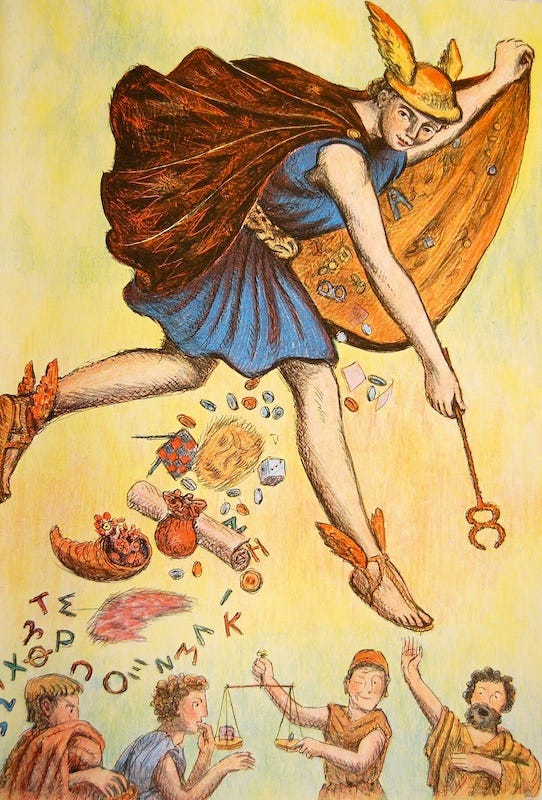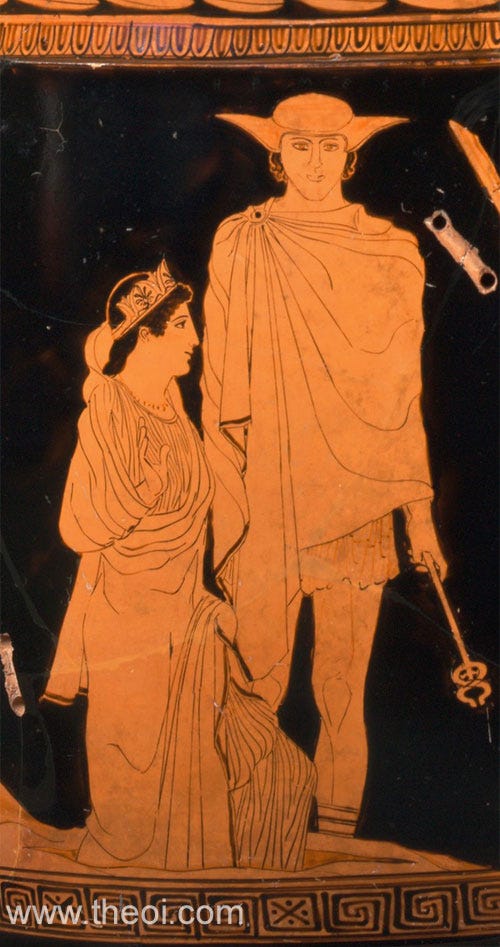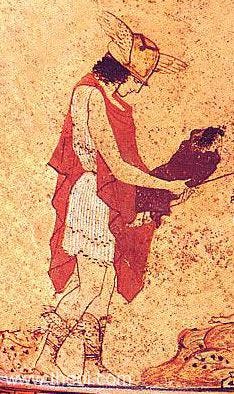I’ve made no secret of my dismay with the latest US election. But I’ll say this in cautious optimism: in the past couple of months, I’ve been sensing a lot of delicious trickster energy. Which in my opinion bodes well.
Writers more eloquent than I have already been talking about it for a while now. Google “trickster energy” and you’ll find many excellent blog posts. As archetypes and characters, trickster gods or trickster figures have been central to countless cultures worldwide, going as far back as we have records.
Tricksters love to break rules, cross boundaries, and thereby shake things up—but usually in ways they need shaking up. They always have fun doing it, too. Tricksters are playful disrupters, and both of those words, playful and disrupt, are equally important to the definition. This isn’t going to be a political post, as that could be a whole other essay, so all I’ll say in concluding that angle is that I’ve been encouraged by the irascible, irreverent, playful, and disruptive attitude that many of my fellow resisters have taken. It’s far better than rolling over and giving up in despair, or sticking one’s head in the sand and pretending everything’s normal. So keep it up, friends!
Who I came here to talk about is the first trickster god I knew and loved: Hermes.
I met the Greek pantheon, like many kids, via D’Aulaires’ Book of Greek Myths, then later learned more through classical texts in college. I eventually wrote a whole trilogy of novels centered around Persephone, Hades, and the rest of the gang (Persephone’s Orchard, Underworld’s Daughter, and Immortal’s Spring). By the end of that project, Hermes had become one of my favorites, as well as the favorite of many readers.
You might know of Hermes as a deliverer of messages between gods and humans. Which he is. But he’s more than that.
You might know him as a thief, and he definitely is. But not just that.
You might think of him as untrustworthy, and you’d be right. But that’s not the whole story either.
You might even know he’s a psychopomp: a guide who brings departed souls to the Underworld. Again true, but it’s only one of his many jobs.
He has so many facets, and is always coming and going on so many mysterious errands, that the more I studied Hermes, the more I decided no one (except Hermes himself) knows all the things he does. He’s nimble, clever, mischievous, untrustworthy, playful, dangerous, seductive, helpful, adaptable, irreverent, dark and light and good and bad all at the same time. He fascinates me, and in my Greek-myth-based novels, I ended up making him one of my main secondary characters (after Hades and Persephone).
However, he’s never one of my point-of-view characters. I never get fully inside his head and show his thoughts, errands, loves, and motives. That’s mainly because I feel like even I, the writer, cannot possibly fathom the depths of the mind of the divine trickster. In Underworld’s Daughter, when another character discovers a trick he’s pulled, and remarks, “Your cat’s out of the bag,” Hermes answers, “No one ever knows about all my cats.” I still believe that. While I do reveal some of his secret plans, I’m certain there are lots more that I know nothing about.
Of all the gods, Hermes is the quickest thinker, the nimblest thief, and one of the most charismatic. In mythology, on the day he’s born, as an infant, he steals all of Apollo’s cattle, covers his tracks, gets caught anyway, then charms Zeus and everyone else—including Apollo—into not holding a grudge and indeed forgiving and liking him. In my version, he’s the one to call on when you need anything (or anyone) stolen or acquired; he’s a con man and sometimes plays tricks even on his friends, but he also protects and avenges them. He’s unpredictable, but mainly benevolent. Chaotic good, some might say.
One of the interpretations that helps me understand Hermes, and ties together all his diverse personality traits, is that he’s a god of boundaries, and of the transgressing of them. As the god of travelers, he helps keep you safe on the road: hermai were simple stone pillars or statues the ancient Greeks set up at crossroads or country boundaries to mark the way. As a psychopomp, he guides souls across the living world/ Underworld boundary. As the god of thieves and tricksters, he embodies the transgression of the taboo against stealing and deceiving—stepping over the boundary between lawfulness and crime.
But even with his dark side, Hermes is generally considered a bringer of good things. He’s often described in myth as playful and light-footed; he flies through the air in the sunlight and starlight on his winged sandals. Yes, he’ll screw you over sometimes and drive you crazy. But he’ll also surprise you with unexpected gifts. For example, as an apology for the cattle incident, he gave Apollo the lyre he (Hermes) had just invented, paving the way for Apollo to become the god of music (among his other attributes).
As I have one of my characters say, “It’s wise to leave room in our lives for the chaotic, the unexpected. Hermes has always been excellent at providing those elements. It’s part of the reason I like him, despite the trouble he causes. Ultimately you will find he brings more good than harm.”
Anyway, haven’t we all had friends like that?







It's difficult to describe the jolt of recognition I experience every time I see one of those D’Aulaires illustrations!
sure, you know about ONE cat & ONE bag...